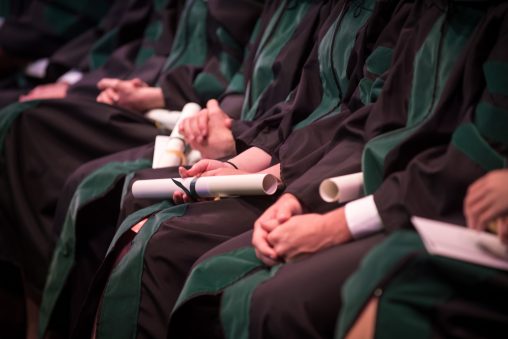
The class of 96 medical students in the Boonshoft School of Medicine will celebrate graduation on Thursday, May 10, at 6:30 p.m. at the Schuster Center.
The Wright State University Boonshoft School of Medicine will hold its annual graduation ceremony on Thursday, May 10, at 6:30 p.m. at the Schuster Center in downtown Dayton. The graduating class includes 96 medical students.
Gregory Toussaint, M.D., assistant dean for clinical skills education and associate professor of pediatrics at the Boonshoft School of Medicine, will deliver the commencement address. A general pediatrician, he graduated from the U.S. Air Force Academy in 1976 and received his medical degree from Virginia Commonwealth University in 1980. He completed a pediatric residency at Wilford Hall U.S. Air Force Medical Center in San Antonio and later a fellowship in general academic pediatrics at Boston Children’s Hospital in Boston. He served 34 years on active duty.
Assigned as a pediatrician and medical staff chief at Air Force facilities in the United States and overseas, Toussaint served three tours as commander of forward-deployed, combat support field hospitals for operations in Iraq and Afghanistan. Toussaint joined the Wright State University Boonshoft School of Medicine faculty in 2005. He is involved with teaching in all four years of the medical school curriculum, from interviewing and physical examination courses to the pediatric clerkship and a fourth-year academic medicine elective.
The Boonshoft School of Medicine graduation ceremony can be streamed lived at medicine.wright.edu/marketing-and-communications/streaming.
Each student’s journey through medical school is unique. Here are a few of their stories.
Felipe Ayala discovered how much he enjoyed learning about the brain and caring for patients suffering from strokes and epilepsy. He was encouraged by two Boonshoft School of Medicine Neurology Residency Program residents, who spent time teaching him about neurology.
We’am Hussain is passionate about bringing a voice to vulnerable populations. The highlight of her medical school career was planning the improv event, “What Would You Do?” The interactive learning event sought to combat discrimination and inequality within the medical field. The event taught medical students about discrimination against minority groups and women.
Kamari Jackson was 3 years old when she told her father she wanted to be a doctor to make him feel better after he was taken to the hospital. As she grew older, she viewed medicine as the perfect marriage between science and service. She wants to be a physician to positively affect the community, the nation and even the world as a whole.
Will Trautman saw two cases in a hospital emergency department that made him decide to become an emergency medicine physician. He saw someone brought back from death by naloxone, the drug used to counteract opioid overdose, and a physician help a patient struggling with alcoholism.
More details about each of these graduating medical students are included in the stories below.
Felipe Ayala: Drawn to neurology to help patients suffering from stroke, epilepsy
When Felipe Ayala was in high school, he participated in a program at Columbia University College of Physicians and Surgeons in New York for students who were interested in medicine. He was exposed to different fields of medicine and met physicians in different specialties who were passionate about medicine and determined to be leaders and advocates within their communities.
“I felt inspired by their work, and I wanted to be a part of it,” said Ayala, who is from Woodside, New York. “I felt drawn to medicine and the impact that I could have not only on patients but on the community as well.”
After high school, Ayala continued on his journey to become a medical doctor at New York University, where he earned a bachelor’s degree in psychology. His next stop was at Southern Illinois University-Carbondale, where he earned a Master of Public Health degree. A representative from the Boonshoft School of Medicine visited his school and met with students.
“I learned more about the Boonshoft School of Medicine, and I could see myself thriving at this school,” Ayala said. “The staff was supportive and there was a focus on social work. There were plenty of outreach programs to work within the community.”
At the Boonshoft School of Medicine, Ayala explored several different medical specialties. It wasn’t until his third year of medical school that he discovered how much he enjoyed caring for neurology patients. Haitham Alabsi, D.O., and Michael Kentris, D.O., who were residents in the Boonshoft School of Medicine Neurology Residency Program, mentored Ayala. They taught him about neurology, and he learned more about the different fields within neurology, including stroke and epilepsy. He realized he would be happiest practicing in the field of neurology.
“Mentors like Dr. Alabsi and Dr. Kentris played an important role as to why I chose medicine for a career. I love what I do. There is so much to learn about the brain,” said Ayala, who will begin a residency in neurology this summer at University of Virginia in Charlottesville. “I hope my story serves to inspire someone who wants to go into medicine. The goal can be reached.”
We’am Hussain: Bringing a voice to vulnerable populations
We’am Hussain has always been intrigued by philosophy and spirituality, seeking to understand the larger purpose of life. She considers the human body the most dazzling creation. She has sought to understand the innovative and creative way humans were created. Her curiosity led to exploring how dysfunction in this refined system leads to illness.
“The way physicians are able to help heal patients, who come in the most vulnerable states, and aid patients in recovery to resume their lives is something that always appealed to me,” Hussain said. “Doctors are a vital resource to any society. Human beings are too complex for their illnesses and diseases to be cured by a patient searching on the Internet or by skimming a medical textbook. The source of knowledge is the scientist, a physician.”
Her experiences volunteering in hospitals from Hyderabad, India, to her hometown of Dayton have provided her with an understanding of how physicians work to find the problem and alleviate the patient’s suffering. She observed how a doctor in India, who had been practicing medicine for 50 years, refused to retire despite his own health issues. He was committed to improving the health conditions of the destitute. In Dayton, she saw a cardiologist arriving at the hospital in the middle of the night to take care of a patient suffering from a sudden heart attack.
She chose the Boonshoft School of Medicine because of the smaller class size, the personalized attention given to students, the diversity and inclusion of the school’s programs and the medical school’s high success rate in matching medical students to residencies of their choice.
“I am grateful for the support that the Boonshoft School of Medicine has given me through my journey of medical school,” said Hussain, who graduated from the University of Dayton with a bachelor’s degree in science. “I have appreciated how this medical school trains its students to be well rounded and humanistic, encouraging students to reach beyond their comfort zones and understand people of other backgrounds and cultures.”
The highlight of her medical school career was planning the improv event “What Would You Do?” The interactive learning event sought to combat discrimination and inequality within the medical field. The event featured Wright State University theatre students acting out scenarios of discrimination against different minority groups, including Muslim Americans, African Americans, Latino Americans and the LGBTQ community. Students and audience members discussed the best ways to stand up against the various forms of discrimination. The event was part of the medical school’s WrightCurriculum for first-year medical students. The improv event was based on real-life situations.
“Bringing a voice to the unheard and vulnerable in the community is my passion,” said Hussain, who will continue to provide leadership for the event as a medical resident completing her internal medicine residency at the Boonshoft School of Medicine. “The improv event gave medical students an opportunity to reflect on how they would feel if they were victimized in a similar manner. It also made them think about effectively stepping up for someone when they see that person is a target of discrimination.”
Kamari Jackson: Student leader in science and service
From a young age, Kamari Jackson has known that she wanted to be a physician. When she was 3 years old, her father was doing some home renovations and fainted. He was taken to the hospital. While she was at the hospital with her father, she told him that she wanted to become a doctor to make him feel better.
“I think of medicine as the perfect marriage between science and service. I have always been intrigued by the human body and its complexities,” said Jackson, who is from Euclid, Ohio. “Physicians are tasked with the responsibility and duty of preserving the health of others. I personally cannot think of a more noble life goal than this. I chose to be a physician to positively affect the community, the nation and even the world as a whole.”
She chose to attend the Boonshoft School of Medicine because of the supportive faculty members and student body. During her first two years of medical school, she loved learning everything she could about the human body. During the spring of her first year of medical school, she traveled to New Orleans to help renovate homes devastated by Hurricane Katrina. The spring break trip is a service-learning elective offered by the medical school. She also traveled to Jamaica later that year as part of another medical service trip.
“These experiences heightened my awareness of health disparities domestically and abroad,” said Jackson, who graduated from The Ohio State University with a bachelor’s degree in health sciences. “As I renovated homes devastated by Hurricane Katrina and volunteered in rural primary care clinics in Jamaica, I saw the need for physicians willing to serve vulnerable populations.”
Throughout medical school, she has been involved with the Student National Medical Association. She organized and volunteered at several health fairs and community outreach events in the Dayton area. She was a mentor to an undergraduate student, advising the student on the medical school application process. She served as a student tutor to other medical students at the Boonshoft School of Medicine. She also served as a student representative for the Wright State Curriculum Steering Committee, where she had the opportunity to contribute to the development and implementation of the WrightCurriculum, the medical school’s new curriculum. She also was inducted into the Alpha Omega Alpha Honor Medical Society for her commitment to academic excellence, leadership and the community.
Research also has been a highlight of her medical school experience. She was the primary investigator of a project that studied the trend in the adoption of the angioplasty procedure in the treatment of peripheral vascular disease by Dayton-area surgeons. She presented the results of her research at the 2017 Medical Student Research Symposium. Most recently, while on a visiting student elective at Northwestern University, Jackson completed a literature review and research proposal for a study that aims to help identify cancer patients at greatest risk of cardiovascular disease following radiation therapy. She plans to investigate this topic further as an internal medicine resident at Northwestern McGaw Medical Center in Chicago.
Will Trautman: Prepared to handle cases in the emergency department
Will Trautman excelled at math and science in high school and college. But he also loved connecting with other people. He thought about a career in medicine. But he wanted to make sure it was for him. So, he spent time in a hospital, shadowing physicians. He watched them remove diseased lungs from tiny cuts in the rib cage and diagnose pediatric heart defects from sound waves. The experience confirmed his desire to become a physician.
“The incredible things these physicians were able to do for their patients kept sticking with me,” said Trautman, who is from Granville, Ohio. “The work of a physician seemed to be the perfect career for me. I will be able to combine the connections I make with my patients with my scientific knowledge of the human body to deliver skilled and compassionate care in order to improve and save lives.”
At the Boonshoft School of Medicine, Trautman, who graduated from Duke University with a bachelor’s degree in chemistry, threw himself into his studies and student organizations. He was involved in the Emergency Medicine Interest Group and was president of the group for a year. He co-founded the Medical Ethics Interest Group and served as co-president for two years. He also served on the Class Council and Advising Committee.
During his third year of medical school, he participated in the Wright Rural Health Initiative, which strives to bolster the health care workforce in rural areas, particularly in West Central Ohio. Trautman spent six weeks at the Wright State Lake Campus in Celina. He worked alongside a family medicine physician.
“I saw patients, connected with them, heard their stories and came up with treatment plans before reporting back to my attending physician,” he said. “My attending physician spent time teaching me and helped me grow as a health care professional. This was a great experience.”
He saw two cases in a hospital emergency department that made him decide to become an emergency medicine physician. He saw someone brought back from death by naloxone, the drug used to counteract opioid overdose.
“It was unbelievable to see how quickly someone’s life could be turned around,” he said. “And then I saw another patient who was falling down the path of alcoholism but had not told anyone. She had lost her husband of more than 50 years. The physician in the emergency department helped her open up to her family and seek help.”
Trautman will begin a residency this summer in emergency medicine at the University of Pittsburgh Medical Center in Pittsburgh.
“Whatever case comes through the door, an emergency medicine physician has to be ready to handle it,” he said. “I love the opportunity to treat people with acute concerns and help them through what might be the worst or scariest day of their lives.”
The Wright State University Boonshoft School of Medicine is a community-based medical school affiliated with seven major teaching hospitals in the Dayton area. The medical school educates the next generation of physicians by providing medical education for more than 459 medical students and 458 residents and fellows in 13 specialty areas and 10 subspecialties. Its research enterprise encompasses centers in the basic sciences, epidemiology, public health and community outreach programs. More than 1,500 of the medical school’s 3,328 alumni remain in medical practice in Ohio.

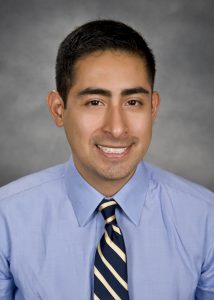
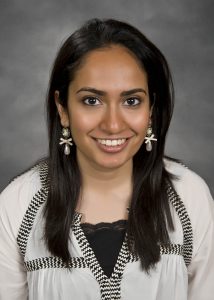
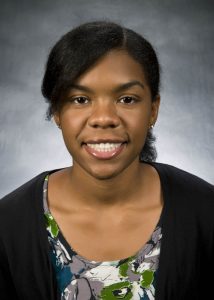
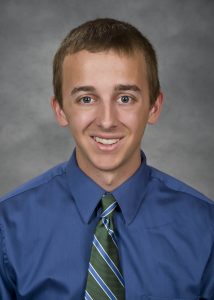
 Wright State psychology team studies ways to identify fatigue in pilots, drivers
Wright State psychology team studies ways to identify fatigue in pilots, drivers  Wright State videographer Kris Sproles wins Regional Emmy and Ohio journalism award
Wright State videographer Kris Sproles wins Regional Emmy and Ohio journalism award  Wright State Boonshoft School of Medicine ranked among the nation’s best for 2024 by U.S. News
Wright State Boonshoft School of Medicine ranked among the nation’s best for 2024 by U.S. News  Exposing biotechnology
Exposing biotechnology  Wright State faculty member Dan Noel uses unique background to inspire new leaders
Wright State faculty member Dan Noel uses unique background to inspire new leaders 